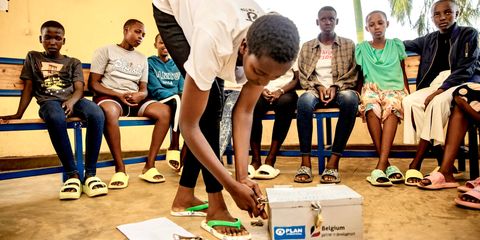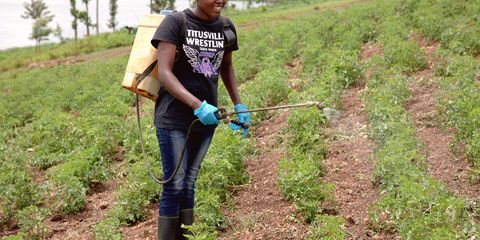Meet the school club combatting malnutrition across refugee communities
In a secondary school with 2100 students near a refugee camp in Rwanda, 16-year-old Alice leads a 30-member nutrition club dedicated to combating malnutrition in both the refugee camp and the hosting communities.
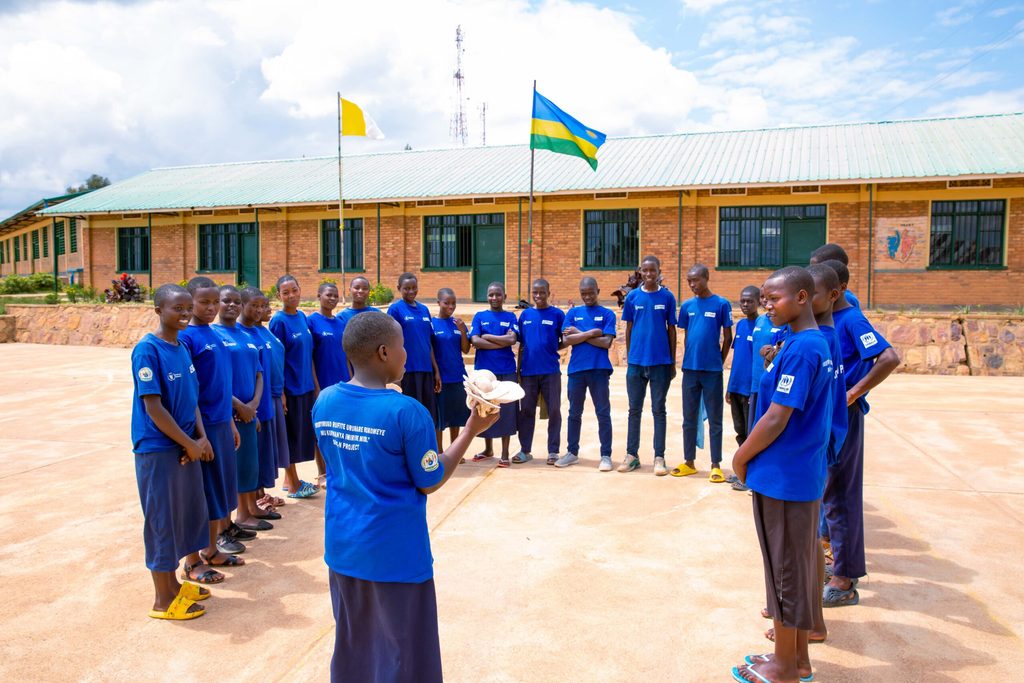
“Our club’s primary goal is to act as role models for others to tackle malnutrition through impactful campaigns and practical training sessions.”
Alice,16
Meeting weekly on Wednesdays from 3:00pm to 5:00pm, the club conducts field visits to families, providing kitchen gardens’ creation training, and educating on the significance of balanced diets.
Its slogan within the local language of Kinyarwanda is: “Twese hamwe twiyemeje kurwanya imirire mibi nk’abonse ibere rimwe. Ni ihame kandi dukomeyeho”, which translates as: “Together, we are committed as one to combat malnutrition. This a principle, and we are devoted to it.”
“Our club’s primary goal is to act as role models for others by tackling malnutrition through impactful campaigns and practical training sessions,” explains Alice.

Alice, a student in her third year, shares that she successfully influenced her family and neighbors; who previously overlooked the importance of incorporating vegetables into their diets.
“I changed my parents and neighbors’ mindsets by successfully training them on establishing their own kitchen gardens,” she said.
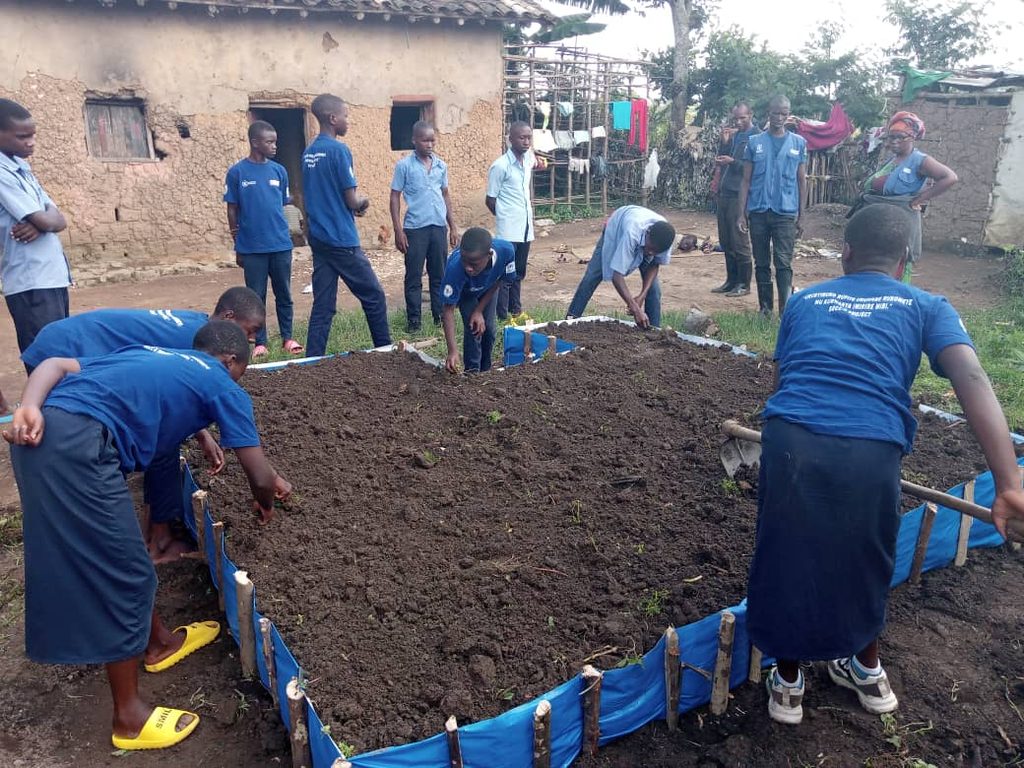
Operational for one 1 and a half years, the club underwent comprehensive training in various aspects of modern agriculture; knowledge the school club team have shared with the community to bring about positive change.
“One of the primary concerns that our club actively tackles is child stunting, specifically targeting young children at their nursery level within the school,” highlights Fred, 17-year-old student in the fourth year.
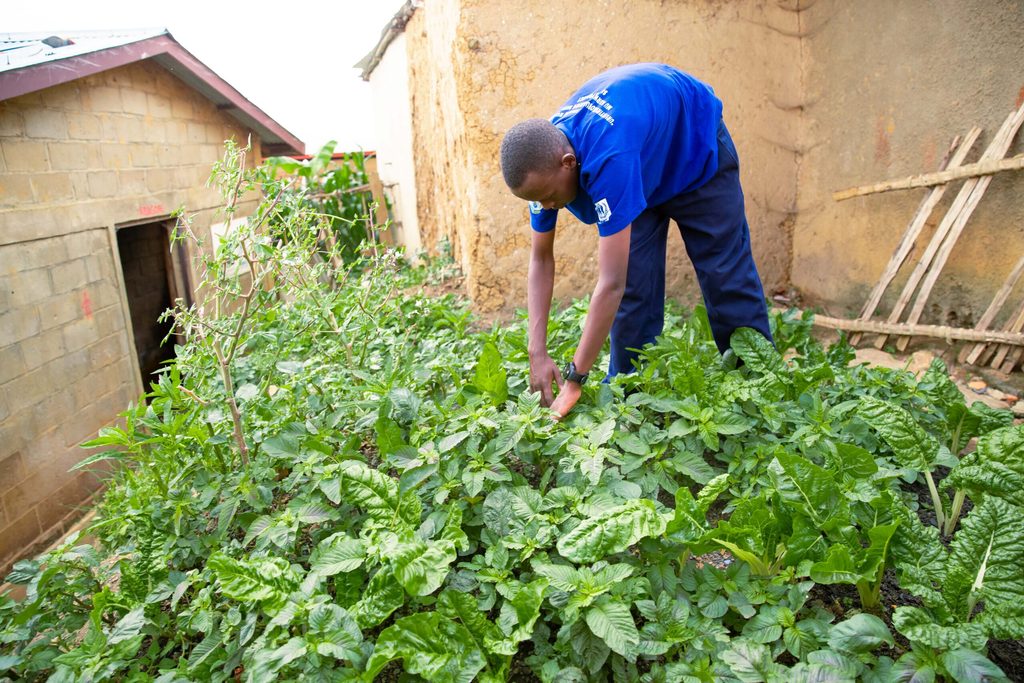
“One of the primary concerns that our club actively tackles is child stunting, specifically targeting young children at their nursery level within the school.”
Fred, 17
Through its initiatives both inside and outside the refugee camps, the club has contributed to the creation of 91 kitchen gardens and the cultivation of 400 mushroom tubes, resulting in a harvest of 140 kilograms, utilised for school feeding programmes.
Positive nutrition mindsets change across communities
Thanks to this school nutrition club’s impactful initiatives, a notable transformation is today evident with some citizens witnessing a shift in nutrition mindsets.
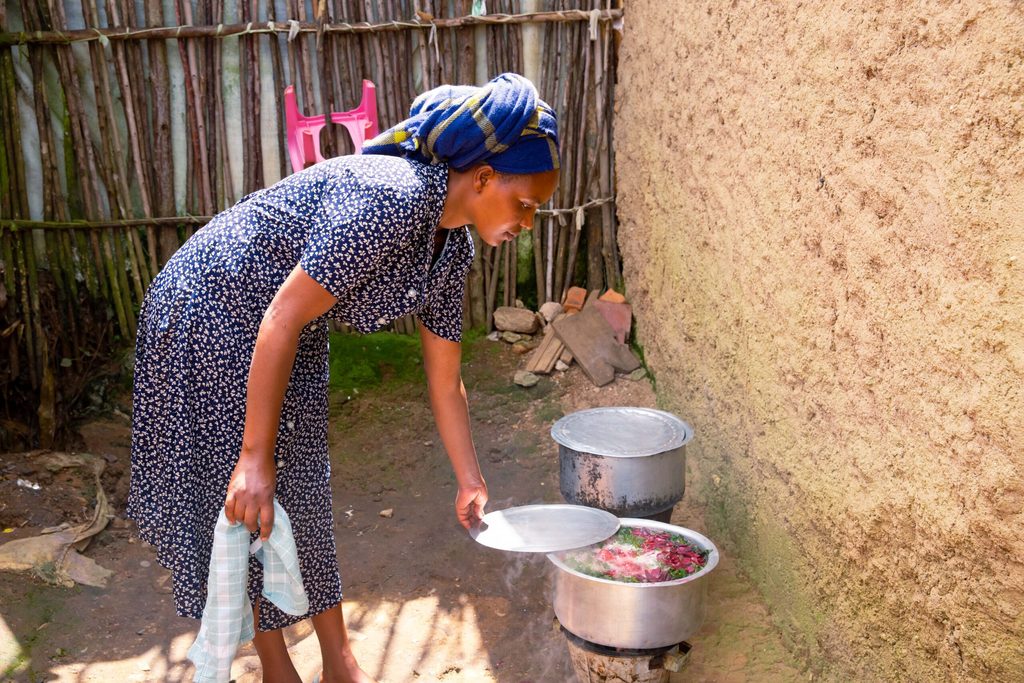
Aimerance, a 32-year-old mother, credits nutrition sessions for the positive change in her family’s life.
“Today, we know how to prepare balanced diets, protecting our children against stunting, using vegetables and fruits, especially for pregnant and lactating women.”
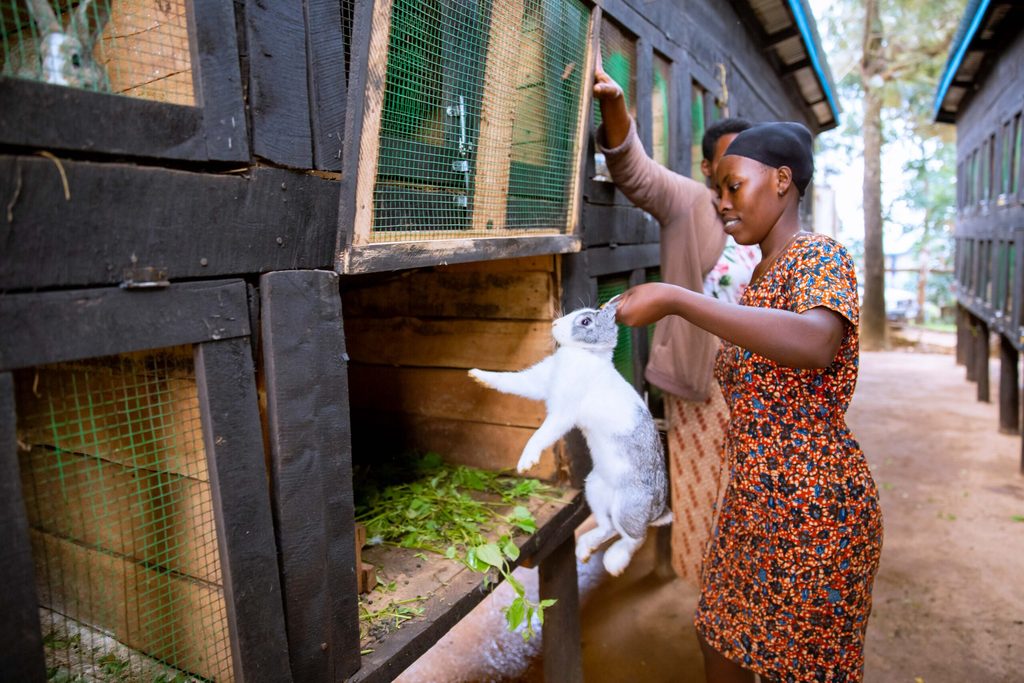
Yvette, 23, emphasises the youths’ role, stating, “We engaged in rabbit farming, providing us with both financial income and meat for our meals.”
She is a member of a thriving cooperative, boasting 98 rabbits, each sold at Rwf 6,000.
About the project
The Social Behavior Change and Communication – Nutrition (SBCC-N) Project, spanning 1 and a half years, is a joint initiative by Plan International Rwanda and the World Food Programme (WFP) in Rwanda.
It operates in 5 selected refugee camps, as well as their hosting communities, with a goal to improve the nutritional status of women, adolescent boys and girls, and refugee children under 5 years.
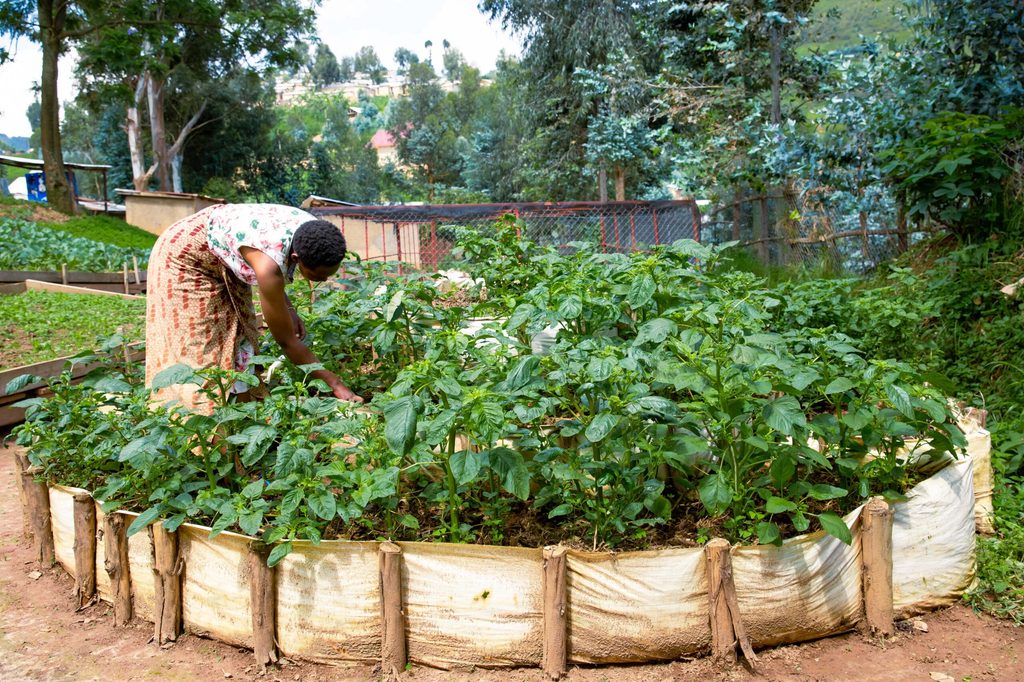
Furthermore, the project also aims to enhance maternal infant and young child nutrition knowledge and practices, while promoting equitable access to and control of nutritious and diversified food, enough to maintain a healthy life in refugee camps and host communities.
“I changed my parents and neighbors’ mindsets by successfully training them on establishing their own kitchen gardens.”
Alice,16
Plan International Rwanda’s SBCC-N Project Manager, Phocas, explains, “In collaboration with different partners, we aim to change perceptions, norms and bad behaviors that lead to malnutrition in the 5 refugee camps where we operate, as well as their hosting communities.”
“World Food Programme supports social behavior changes, communication and nutrition activities, promoting safe reliance through initiatives like cooperatives and joint agriculture projects that involve both refugees and host communities,” adds Alfred, WFP’s Refugee Operations Manager.
This project encompasses various activities such as establishing associations and facilities for mushroom cultivation, creating vegetable nurseries and kitchen gardens, distributing small livestock including rabbits, pigs and goats, supporting local farmers with a variety of seeds, fertilisers, organic manure and tools. Additionally, participants acquire business skills, and financial support is provided through the Village Savings and Loan Associations.
